Lectures
2015
20 Jun – 21 Jun
Archive-House (Gulbenkian Garden)
Read more
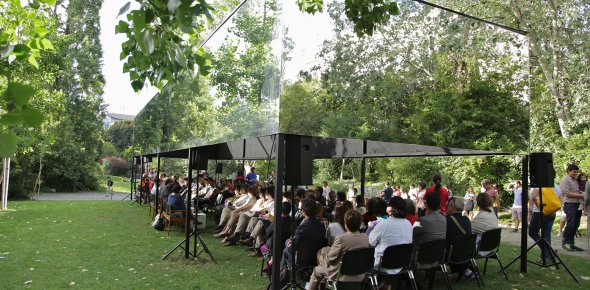
In 2015, the Next Future’s Festival of Literature and Thought features five sessions where political and artistic concerns in the Mediterranean region and in Central America, and other "zones of contact", will be discussed. These sessions will take place in the Archive-House, built in the Garden using materials from previous Next Future editions. This is a way of remembering the hundreds of people who have been involved in this programme over the past seven years of debates, productions, creations, film screenings, parties, and other events.
30 May
Auditorium 3
Read more
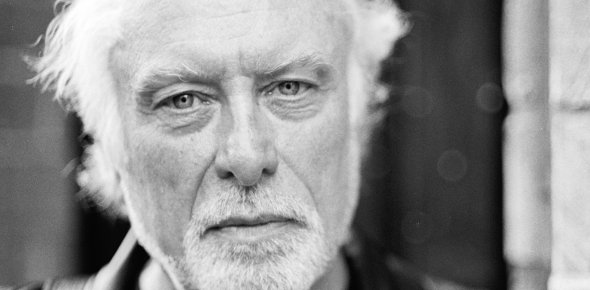
The mutations of coloniality and the current world (dis) order
What I will do is to briefly trace the history of coloniality of power since the sixteenth century, its historical configuration, transformation and management. I will then argue that since around 2000 (and one could argue a couple of previous decades), something began to change drastically. Let's call it "the big mutation" to distinguish it from Karl Polanyi's "great transformation"). The big mutation began to happen when Western Civilization, which built itself on two pillars, modernity/coloniality, cannot longer control the monster it created in the process of creating itself as Western Civilization: the colonial matrix of power (or coloniality of power for short). Many events today from financial crisis to the crisis of European Union, US' s lost hegemony attained after WWI, the crisis in the Middle East and the civil war in Ukraine, the growing force of Cartels in South America, etc., could be understood from the history of coloniality of power. Next step is to think about the consequences of this big mutation and to speculate what futures venues are being closed on the one hand and opening on the other.
2014
20 Jun – 22 Jun
Totem - Jardim da Fundação - Free Admission
Read more
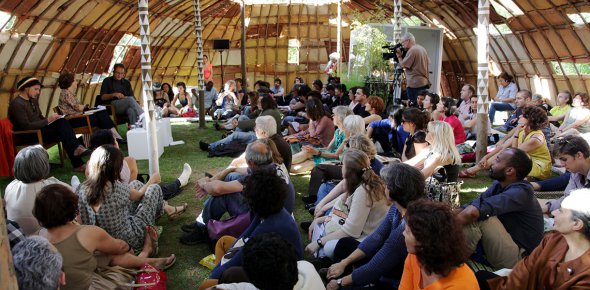
At the Totem – a site of debate – during these three days will engage in a conversation about several questions around the idea of a Latin- American identity. Is there something that resembles this concept? Is it possible to name it in the globalization scenario? Is there an infinite variety of themes, political regimes, differentiated demographics, regional artistic prepositions… or are there just authors’ identities?
With some of the best specialists from Latin America or experts in this problem, we’ll discuss this and other themes.
2013
21 Jun – 23 Jun
Cabana
Read more
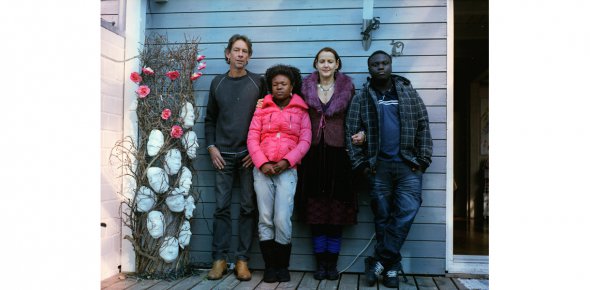
In 2012, we organised a public debate about the specific cultural, political and artistic issues facing North Africa and the Middle East. This year, we will be holding a similar type of debate, but on this occasion it will be wider-reaching and will focus on the region of the south of Africa, or, in other words, the broader region of Southern Africa. 1994 was the year that marked the end of apartheid in Africa, with Frederik Willem de Klerk relinquishing his hold on power and with Nelson Mandela being elected president. But this was not only the end of an inhuman regime for South Africa: it had repercussions all over Africa, and, above all, in the region of Southern Africa. Nineteen years later, what is the panorama facing these countries in Southern Africa? What improvements have there been? What dynamics exist? What frustrations have been built up? What prospects are there for the next future? A vast group of leading figures from this area and specialists who monitor the dynamics of these countries have been invited to discuss these questions by taking part in this Festival of Literature and Thought of south of Africa.
12 Apr
Auditorium 3 & Room 1 (Calouste Gulbenkian Foundation)
Read more
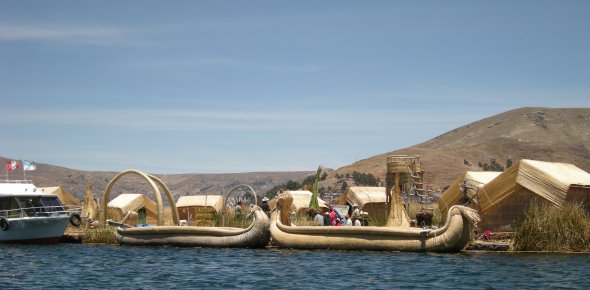
The Colloquium ACT 29 – Literatures and Cultures in Portugal and Hispanic America: New Perspectives in Dialogue offers a platform for discovering and debating common issues in the literatures and cultural production of the 20th and 21st centuries in the Portuguese and Hispano-American worlds. Without losing sight of the diverse contents and contexts contemplated over time by the artistic output of these worlds, the focus here will be on particular thematic areas which emerge as especially relevant from this combined perspective on literatures and cultures in Portugal and Hispanic America.
2012
15 Nov
Auditorium 2 of Calouste Gulbenkian Foundation
Read more
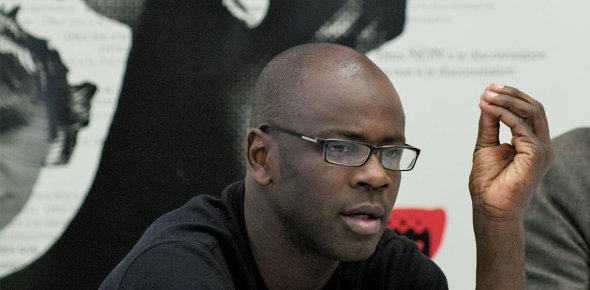
We are not born racist, we become racist. This truth forms the cornerstone of the Lilian Thuram Foundation – Education against Racism. Racism is an intellectual - and above all political - construct. We need to realize that history has conditioned us, from generation to generation, to see ourselves before all else as black, white, North Africans, Asian… It is important to understand how our prejudices came about in order to deconstruct them. Our societies should accordingly take on board the simple idea that the colour of a person’s skin or their gender has no bearing on their intelligence, the language they speak, the religion they profess, their physical abilities, their likes and dislikes. Each one of us is capable of learning anything, however evil or however good. In Lisbon, as part of the Gulbenkian’s Next Future Program, Lilian Thurman will present the Foundation, its scientific committee and main achievements since its founding in 2008. He will debate all forms of racism with the audience.
8 Sep
Aud. 3 of Calouste Gulbenkian Foundation
Read more
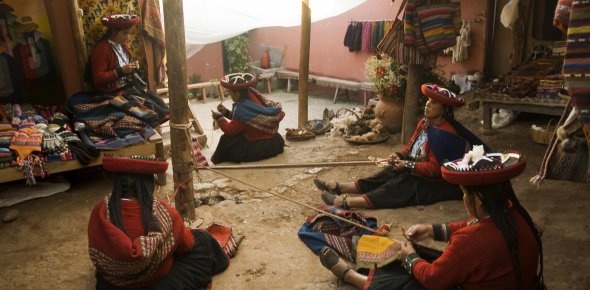
Ticio Escobar, one of South America’s most respected intellectuals, and Abdelwahab Meddeb, one of the first writers to take the Arab Spring as his subject, are the speakers invited by Next Future for this instalment of the lecture series, designed to give a platform to thinkers primarily from South America, Africa and Europe. Curator, teacher and art critic, Ticio Escobar (Asunción, 1947) was until a few months ago Paraguay’s Minister of Culture and will speak to us about the future of indigenous folk art in the context of globalization and the ability of traditional cultures to survive in the contemporary world. The Franco-Tunisian essayist, poet and political commentator Abdelwahab Meddeb (Tunis, 1946), a fierce critic of Islamic fundamentalism, was one of the first writers to take the Arab Spring as his subject: “Tunis Spring – the metamorphosis of History” (2011) is also his latest work. He will use his lecture to talk to us about the future prospects for freedom, considering the conflict between secularism and Islamism.
22 Jun – 24 Jun
Tenda
Read more

When the Gulbenkian Program Next Future began in 2009, it was really focused on the cultural dimension and artistic players of the current African, Latin American and Caribbean countries, relative with European cities and creators. No one would imagine that just three years afterwards the revolutionary movements in North Africa and in the Middle East would take place. And yet this burst of rebellion, of longing for freedom and democracy not only rocked these countries with immediate consequences in terms of regime changes as it shook the world and drew attention to populations, creators, policy-makers in these regions where there were so much ignorance to add to so many clichés, mostly negative. Only a year has passed, many social upheavals have occurred and many others will occur regardless of a more pessimistic view, even scepticism, or even in some cases of an excessive optimism and belief. We, who live in this present time are privileged witnesses and should be aware of what goes on listening, reading, studying, talking to the interlocutors in this process, the Egyptians, Tunisians, Syrians, Moroccans, Algerians, etc.. In the particular case of the Next Future Program, the creators of these regions are fundamental interlocutors being locals or just part of the Diaspora. Therefore within the programming of the Festival of Literature and Thought of North Africa we will talk and listen to creators, curators, artists on the state of the arts in these countries, to better know and better understand ourselves.
António Pinto Ribeiro
Chief Curator of Gulbenkian Program Next Future
2011
16 Nov
Auditorium 2
Read more
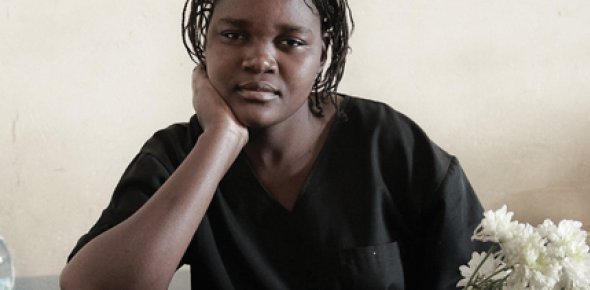
17 Jun
Auditorium 2
Read more

13 May
Auditorium 2
Read more
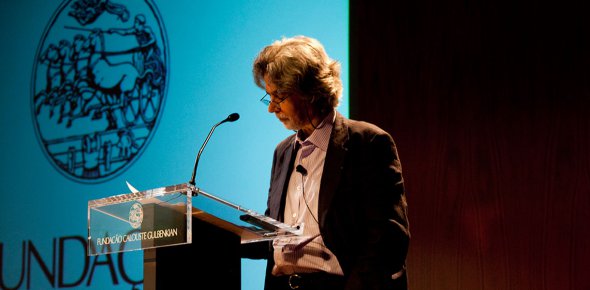
With Patrick Chabal, “Western Rationality after Postcolonialism”, Kole Omotoso, "The Endangering Ambiguity Of The Wabenzi Tribe: Next Futures Africa" and Yudhishthir Raj Isar, com a "Cultural Policy: confronting a hydra".
2010
2 Jul
Alan Pauls
Auditorium 2
Read more

All writers invent a conceptual character to write without writing, to continue to make literature where there is no support other than the “here and now” of the experience that, for lack of a better word, we call “life”. These conceptual characters are not circumstantial. They are the result of what they write. When inventing these strategic masks, they observe innovative ways to place literature and life on equal footing.
1 Jul
Helena Buescu
Auditorium 2
Read more
The crossroads in the current debate on world literature and the transversal dimension of the Portuguese-speaking world. The comparatist enrooting of world literature and the integration of the observation point in Portuguese, in a paradigm, that is not limited to it. Some symbolic and political implications.
30 Jun
Victor Borges
Auditorium 2
Read more
Are the exogenous and global transformations of the world, the development agendas of Governments and the internal and profound tendencies of societies spontaneously compatible and/or capable of coexisting harmoniously? Do globalisation and specifically, the ICT revolution leave room and credibility for “society projects”? To let things happen or make them happen in the “next future”? That’s the question!
29 Jun
Mamadou Diawara
Auditorium 2
Read more
Knowledge is produced according to norms. These norms are appropriated, re-appropriated, transformed according to the milieu and to the actors involved. Here the city and its residents, in other words the modern context, play a highly significant role. Music and performance were and are above all a highly complex social, political and economic phenomenon.
26 Jun
Pablo Brugnoli
Read more
CIUDAD SUR is the following of movements of ideas and bodies that travel through the Southern Cone of America. The common interest is to rethink our cities, as being places with tools that prioritise organizational systems tending towards community reconstruction rather than as exotic postcards. CIUDAD SUR is a revision of ideas, working groups' practices and projects, groups, architects and artists who have been working on these issues for 10 years in Argentina, Brazil, Chile and Uruguay.
25 Jun
José Del Pozo
Auditorium 2
Read more
Since the 1980s, Latin America has entered into a new stage of its history. The return to democracy has been a crucial aspect but there have also been other things that have started to give the region a new look: the increasing emigration flow to Europe and North America, the emergence of different means of economic integration, the appearance of regimes that seem to constitute a “new left” and the intense diplomatic activity aimed at giving this region a more autonomous voice in relation to the globalised world.
24 Jun
Ruth Simbao
Auditorium 2
Read more
Contemporary art of Africa and the African diaspora is often steered by European and American artworlds that emphasise a unidirectional leaning towards the ‘North’. This presentation reframes the geo-spatial politics of the contemporary artworld, by positing the ‘South’ as a nexus of ‘local’ cosmopolitanisms and intra-continental movements and diasporas.
22 Jun
José Tolentino de Mendonça
Auditorium 2
Read more
After “Wittgenstein” and “Padres do Deserto”, after “4’33” (Four minutes and thirty three seconds), by John Cage, and “Séculos de Prática Conventual”, after Susan Sontag and Dionísio Areopagita, what do we really know about silence?
21 Jun
Alexandra Barahona de Brito
Auditorium 2
Read more
When we look at Latin America we can interpret what is going on there through these various lenses: we can concentrate on what is cyclical about the region; we can mark out major underlying continuities, and we can also take the more journalistic view. Our prognosis about its future prospects will be coloured by the lens we adopt to examine its past evolution. I therefore note some major continuities, identify some key cycles, and then take a more short term view to interpret what is going on and what we might expect in the coming years. Recognizing the internal diversity of Latin America despites is shared characteristics is a way of avoiding the pitfalls of the single story and to tell, instead, what Chinua Achebe calls a “balance of stories.”
19 Jun
Gayatri Chakravorty Spivak
Auditorium 2
Read more
This paper is based on a slight myth-translation: Proximo Futuro as "The Future as Neighbor" rather than "The Next Future" (this is how prochain is mis-translated in Levinas). If we think that in space rather than in sequence an obligation imposed upon us by the contemporaneity of the global today, we are obliged to translate Europe persistently as the site of intervention. How, then, do we think the future? I will refer specifically to Aime Cesaire, Une Saison au Congo.
18 Jun
Néstor García Canclini
Auditorium 2
Read more
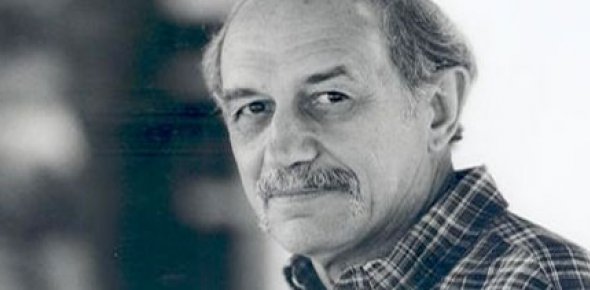
Some anthropologists such as Marc Abélès, state that we have changed our relationship with politics: we have stopped enjoying being together, sociability, and have moved on to a phase where survival is the primary concern. When society becomes sombre and increasingly precarious, we stop planning the future: we move from precaution to prevention.













